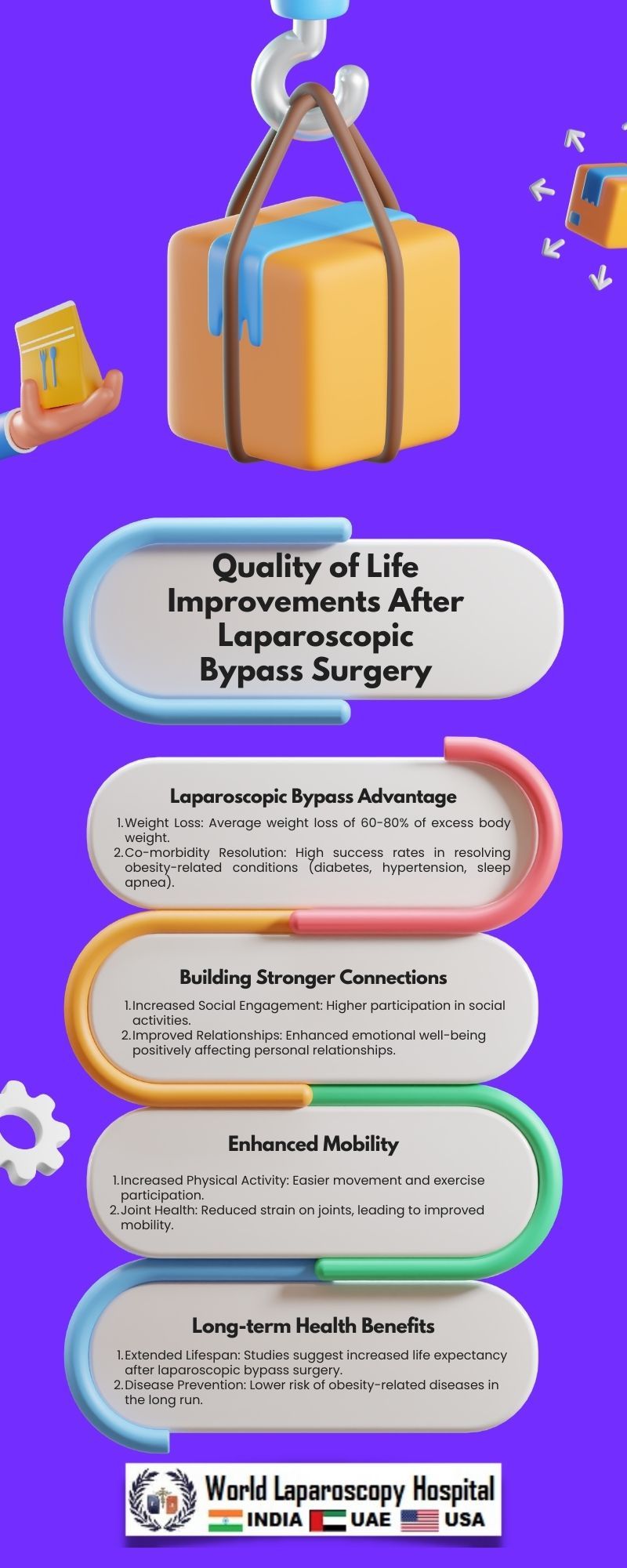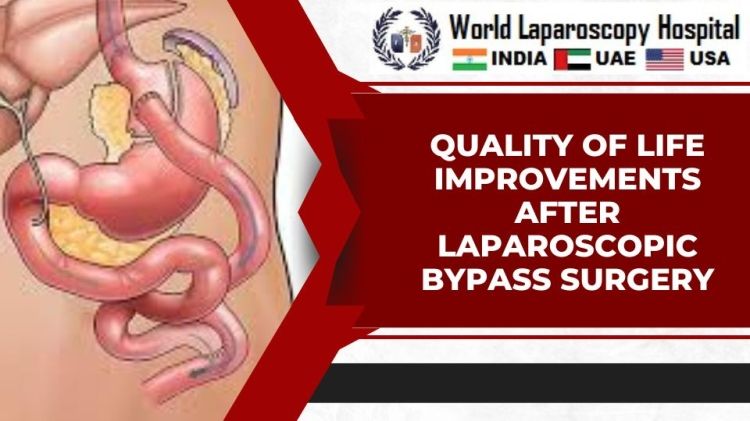Quality of Life Improvements After Laparoscopic Bypass Surgery
Introduction:
In recent years, laparoscopic bypass surgery has emerged as a transformative intervention for individuals grappling with obesity and related health issues. This minimally invasive procedure, often heralded as a breakthrough in medical science, not only addresses weight concerns but also brings about substantial improvements in the overall quality of life for patients. This article delves into the multifaceted aspects of how laparoscopic bypass surgery positively impacts various dimensions of life, from physical health to emotional well-being.

Understanding Laparoscopic Bypass Surgery
Before delving into the improvements in quality of life, it is essential to comprehend the intricacies of laparoscopic bypass surgery. This procedure involves creating a smaller stomach pouch and rerouting the small intestine, thereby altering the digestive process. Unlike traditional open surgery, laparoscopic techniques employ small incisions and specialized instruments, resulting in reduced trauma to the body, decreased recovery times, and minimized postoperative pain.
Physical Well-being
Weight Loss and Its Ripple Effects:
The primary objective of laparoscopic bypass surgery is to facilitate substantial weight loss. Patients often witness a dramatic reduction in excess body weight within the initial postoperative months. This not only alleviates the physical strain on joints and muscles but also mitigates obesity-related health issues such as diabetes, hypertension, and sleep apnea. Improved metabolic health and reduced strain on vital organs contribute significantly to an enhanced physical state.
Increased Mobility and Stamina:
As weight diminishes, patients experience heightened mobility and stamina. Daily activities that were once arduous become more manageable, leading to increased physical activity. This positive cycle of improved fitness and endurance fosters a healthier lifestyle, reinforcing the long-term benefits of laparoscopic bypass surgery.
Psychological Well-being
Emotional Resilience:
Obesity often takes a toll on mental health, causing feelings of isolation, depression, and low self-esteem. The remarkable weight loss achieved through laparoscopic bypass surgery can act as a catalyst for improved emotional well-being. Patients report increased confidence and a positive self-image, fostering emotional resilience that extends beyond physical changes.
Alleviation of Mental Health Conditions:
Studies have indicated a correlation between obesity and mental health conditions such as anxiety and depression. Laparoscopic bypass surgery not only aids in weight loss but has also been associated with a reduction in symptoms of these mental health issues. The interplay between physical and mental well-being showcases the holistic impact of this surgical intervention.
Social and Interpersonal Aspects
Improved Social Confidence:
The social implications of obesity are undeniable, with individuals often facing stigmatization and societal judgment. Laparoscopic bypass surgery provides a pathway to improved social confidence as patients witness positive changes in their appearance and overall well-being. This newfound confidence often translates into enhanced social interactions and relationships.
Positive Impact on Relationships:
Beyond individual experiences, the surgery can positively influence relationships. Spouses, family members, and friends often observe the positive transformation in patients, leading to strengthened bonds and a supportive social network. The ripple effect of improved interpersonal relationships contributes significantly to an individual's overall quality of life.
Dietary Changes and Nutritional Considerations
Adaptation to a Healthier Diet:
Post-surgery, patients must adhere to dietary guidelines that promote a balanced and nutrient-rich intake. While initially challenging, these dietary changes foster healthier eating habits, influencing long-term well-being. The shift towards a more mindful approach to nutrition not only aids in weight maintenance but also contributes to overall health and vitality.
Nutritional Supplementation:
Given the altered digestive anatomy resulting from laparoscopic bypass surgery, patients often require nutritional supplementation to meet their body's requirements adequately. Understanding and adhering to these supplementation guidelines become crucial in maintaining optimal health and preventing nutrient deficiencies.
Challenges and Considerations
While laparoscopic bypass surgery has shown remarkable success in enhancing the quality of life for many individuals, it is essential to acknowledge potential challenges and considerations. These may include the need for ongoing medical monitoring, the possibility of complications, and the importance of long-term lifestyle modifications. Comprehensive preoperative education and postoperative support play pivotal roles in navigating these challenges successfully.
Conclusion:
Laparoscopic bypass surgery stands as a beacon of hope for individuals struggling with obesity, offering not only a path to significant weight loss but also a comprehensive enhancement of their overall quality of life. From physical well-being and emotional resilience to improved social interactions and dietary habits, the positive impact of this surgical intervention extends across various dimensions. As medical science continues to advance, understanding and harnessing the full spectrum of benefits from laparoscopic bypass surgery will undoubtedly pave the way for a healthier and more fulfilling life for those who choose this transformative path.
